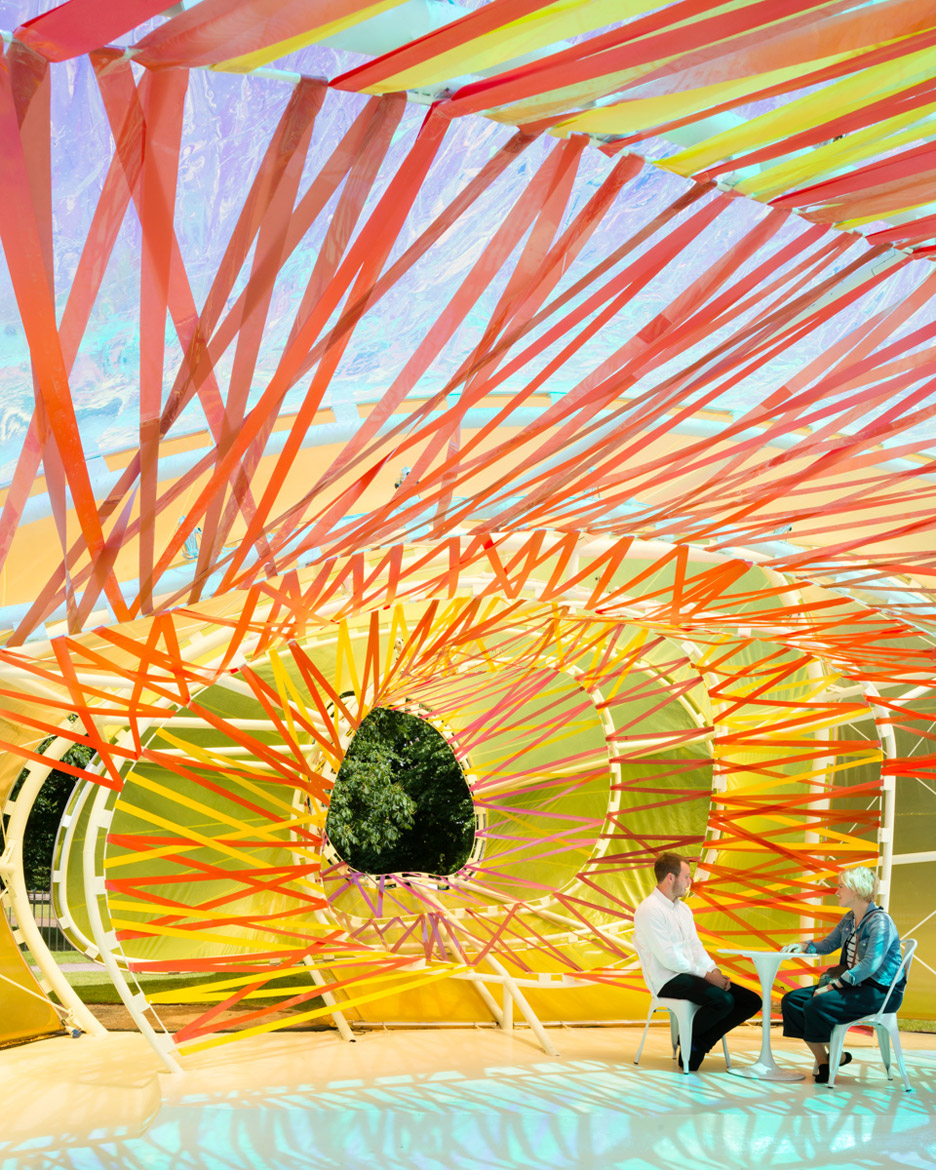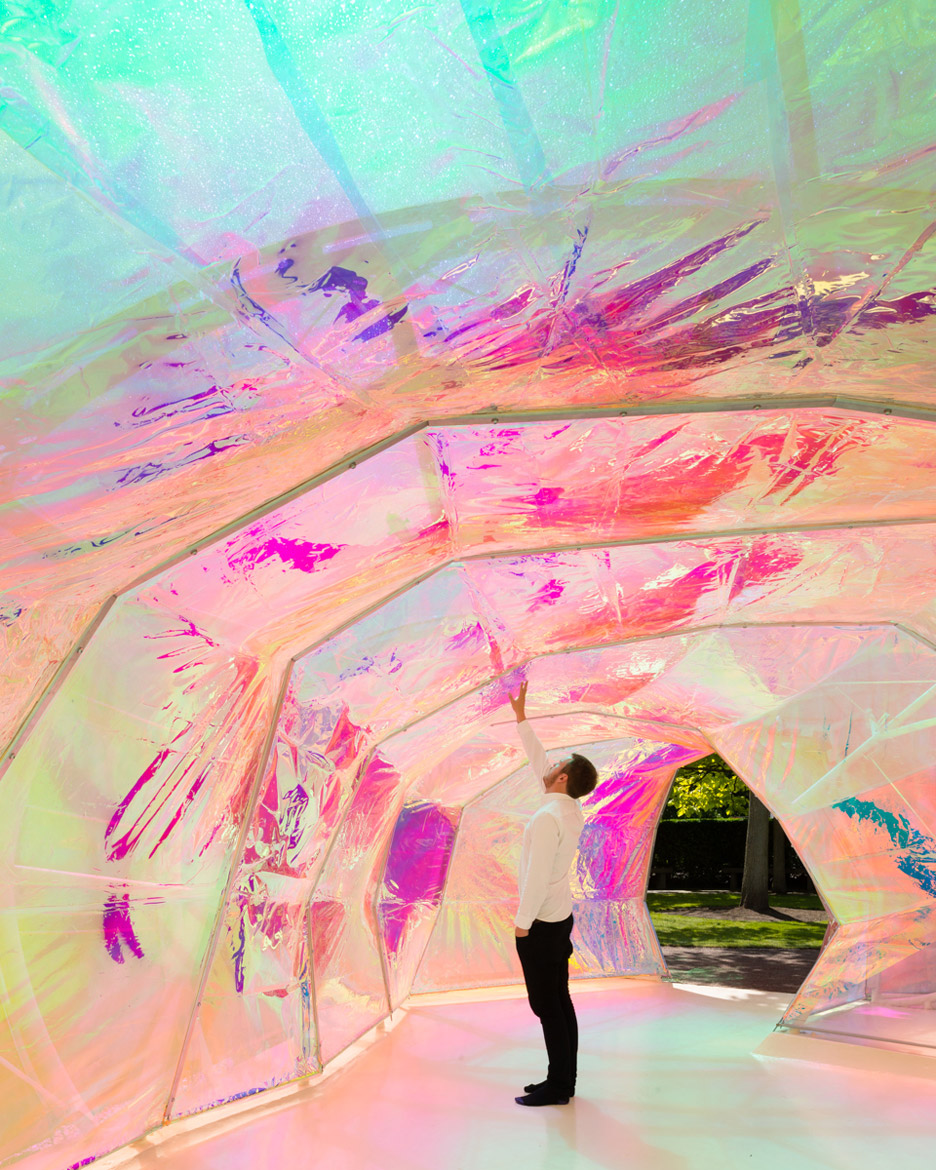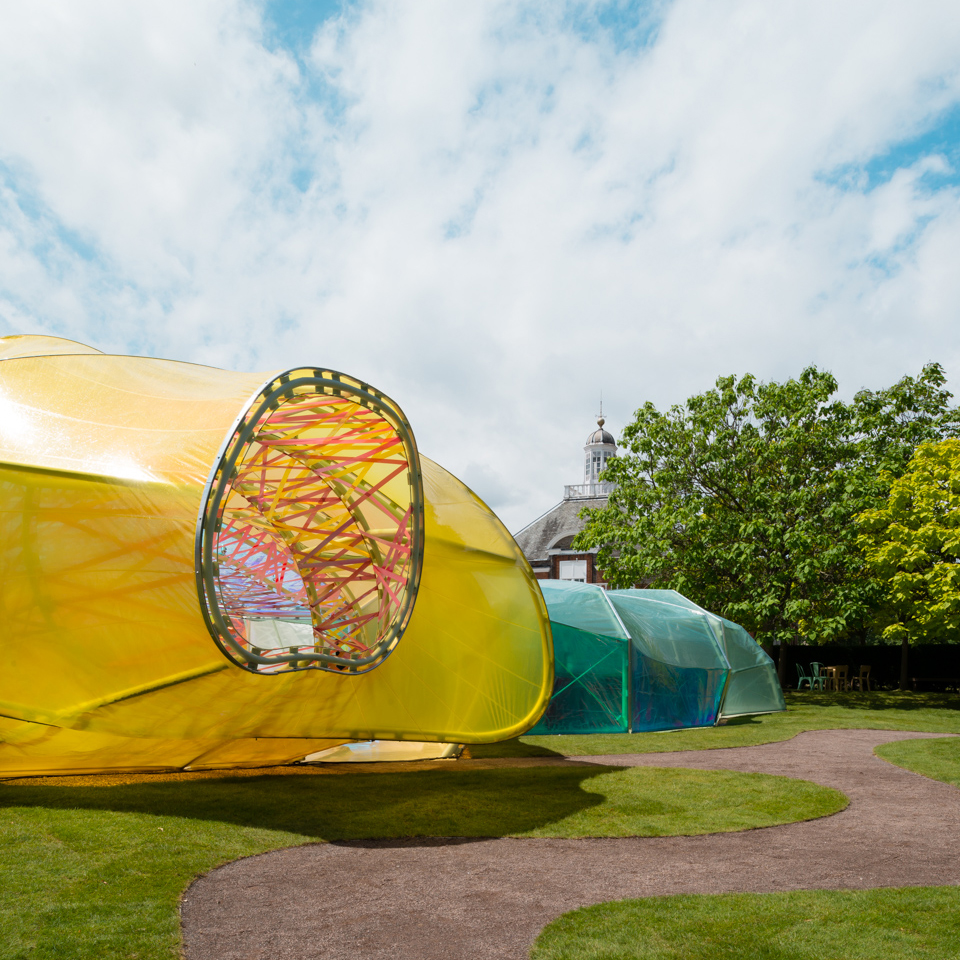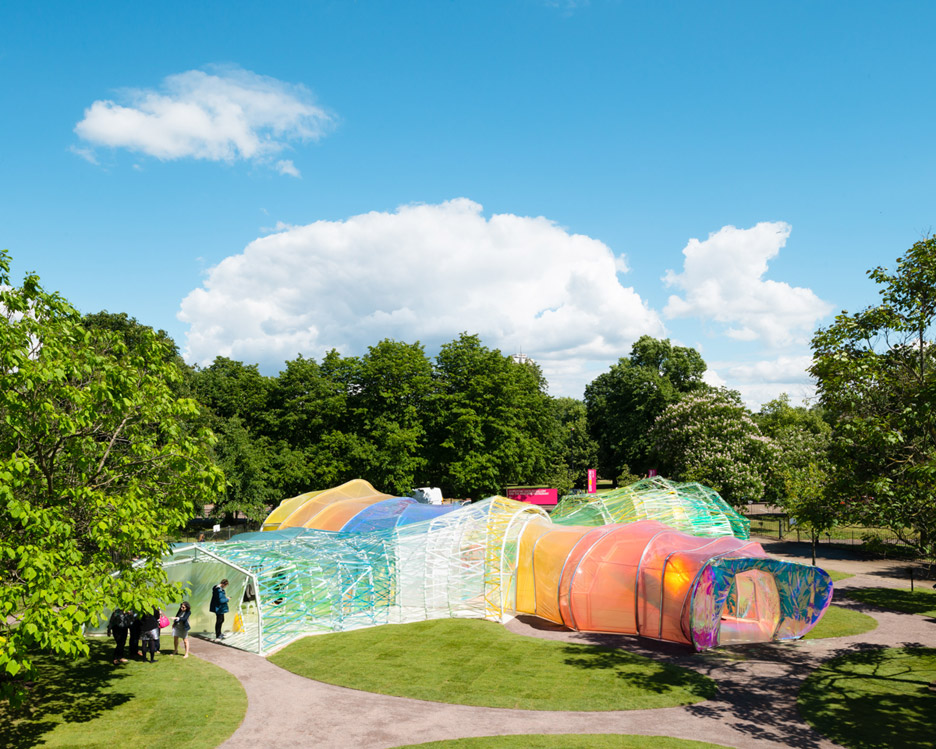SelgasCano's Serpentine Gallery Pavilion closes this weekend after attracting 170,000 visitors
As SelgasCano's Serpentine Gallery Pavilion closes this weekend, this movie by Stephenson/Bishop takes a closer look at the details of colourful plastic structure, which will now move to a permanent home in Los Angeles (+ movie).

For the 15th edition of the Serpentine Gallery Pavilion series, Spanish architects José Selgas and Lucía Cano created a tubular tent-like structure using fluorine-based plastic ETFE, which has now had over 170,000 visitors.
The plastic surfaces, which display a spectrum of hues, are transparent in some areas and opaque in others. There are also ribbons of the material wound around the metal framework, creating additional bands of colour.

Shortly after the pavilion's opening, it was purchased by creative workspace company Second Home – the brainchild of former government advisor Rohan Silva. After the closing weekend, it will move to a permanent home in LA to become a performance and meeting space for the company's first US outpost.
Second Home opened its first building at the end of 2014, attempting to reinvent the office to reflect contemporary working habits. SelgasCano was also behind this space, which involved transforming a former carpet factory into a series of bubble-like offices interspersed with communal areas and plants.

Speaking to Dezeen earlier this year, Silva said LA was the next logical step after London as it has become a more creative city than New York, which is suffering from sky-high prices and lack of affordable studio space.
"Why is Second Home going to LA? Because that's where the artists and the creatives are going and we want to support that community," Silva said. "That's what our company's about."

Silva and business partner Sam Aldenton reportedly paid a six-figure sum for the Serpentine Gallery Pavilion, which closes after the weekend.
During its four-month run, the pavilion has hosted a talk between SelgasCano and former pavilion architects Sou Fujimoto and Smiljan Radić, as well as poetry readings, dance performances, theatre and music events.
Movie is produced by Stephenson/Bishop. Photography is by Jim Stephenson.
Dezeen is looking back at each of the pavilions from 2000 to 2015 in a series of exclusive interviews with gallery director Julia Peyton Jones. You can watch all the movies as we publish them on our YouTube playlist: